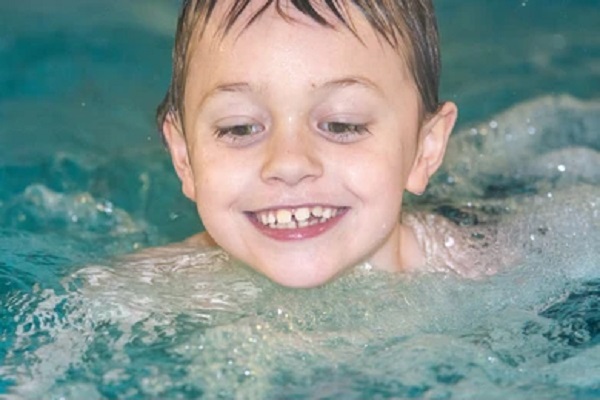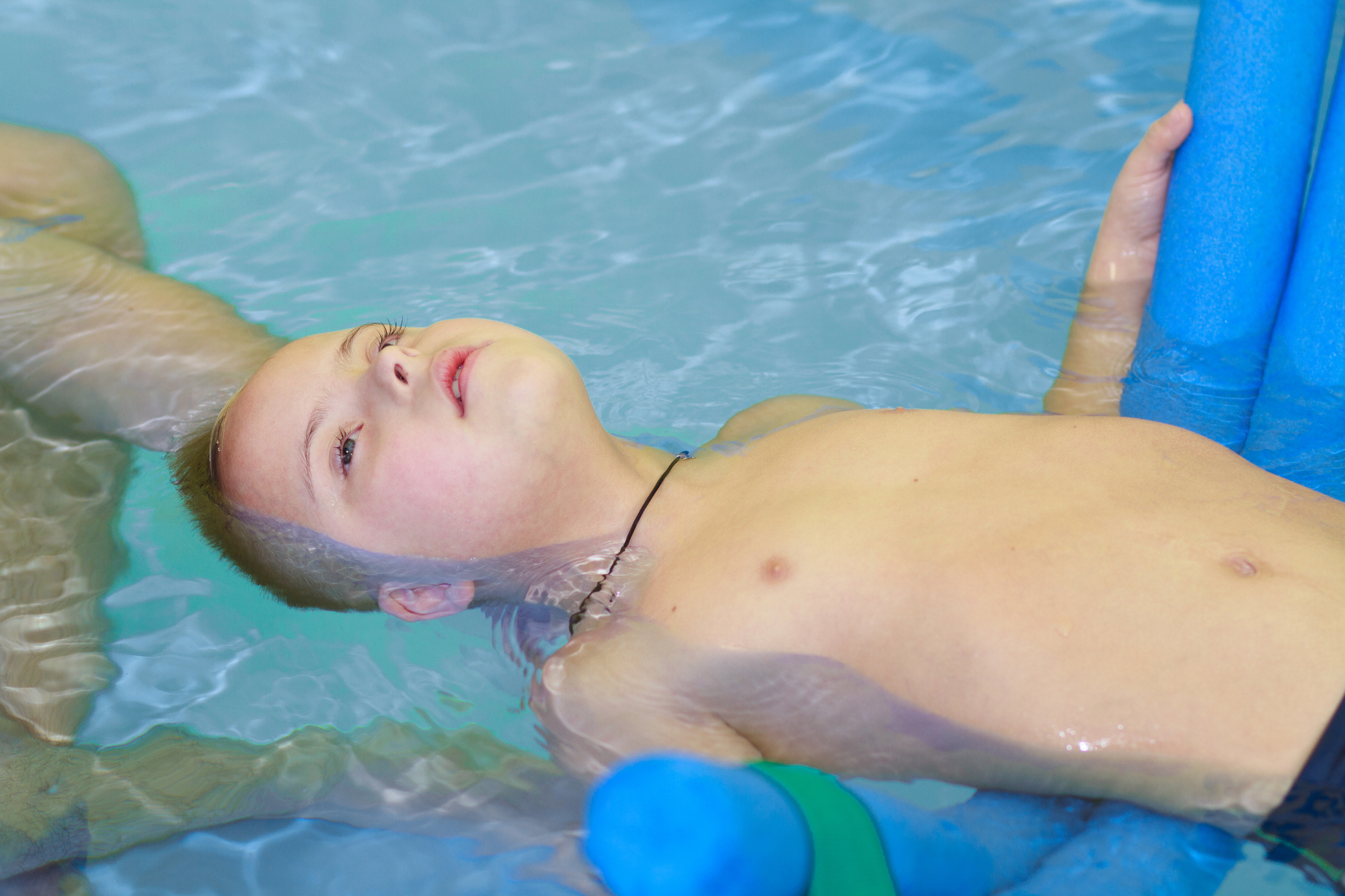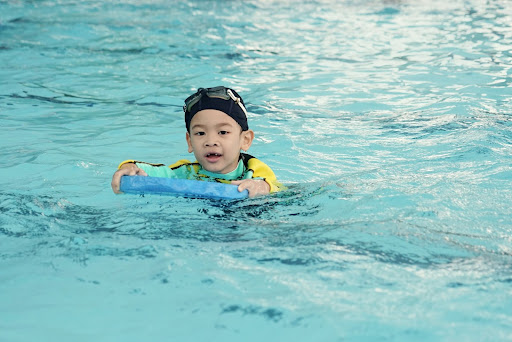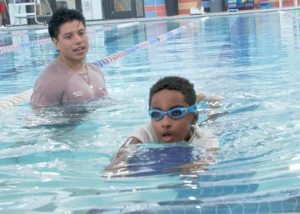What to Look for in a Swim School for Your Autistic Child
Many children on the autism spectrum are drawn to water. This can be understandably frightening if a child does not know how to swim. Being in the water in a safe, monitored setting, however, can offer a host of benefits to any child with autism.
10 Reasons Swimming Is Beneficial for Autistic Children
1. Great for Physical Health
Some children with autism spectrum disorder (ASD) have difficulty with or an aversion to physical activities. Swimming is a wonderful, low-impact activity and a great alternative to screens, electronics, or other sedentary pastimes.
Swimming can improve a number of physical attributes:
-
- Balance
- Coordination
- Agility
- Cardiac fitness
- Muscle strength
These benefits apply to children both on and off the spectrum.
2. Calming Sensory Experience
The water provides a wonderfully calm environment for children who are prone to overstimulation or feeling overwhelmed by sensory intake. The water itself provides a pleasant, consistent pressure, and it can dampen or soften certain stimuli that would otherwise cause anxiety.
3. Naturally Repetitive Nature of Swimming
Many children with autism will exhibit repetitive motions or behaviors as a kind of self-soothing mechanism.
By its nature, swimming requires repetitive motions. (Stroke after stroke works you down the length of the pool.) Many swimmers with autism find this inherently calming.
4. Creativity and Imaginative Play
If your child on the spectrum is drawn to water, it’s a great opportunity to foster creativity and to promote imaginative play. This can be done in the pool, or it could be accomplished with something as simple as an interactive water table in the backyard.
5. Shared Interests with the Whole Family
With restricted interests, individuals on the autism spectrum can find it difficult to relate to their family members. Swimming is a great way to share healthy, engaging, fun times together.
Swimming can be shared between the child and his or her siblings, parents, various caregivers, or others.
6. Improved Communication
Autism has a wide range of signs, but one hallmark is difficulty communicating. Through the sensory experience of swimming, you and your child on the spectrum can talk about what you’re seeing, feeling, and doing in the water.
This kind of back-and-forth interaction can foster bonds and improve both verbal and nonverbal communication.
7. Meditative State
Meditating often revolves around focusing on your breath and clearing your mind of extraneous thoughts. This can be understandably difficult for anyone but especially a child on the spectrum.
When you’re swimming, though, you have to overtly focus on your breathing. The repetitive counting of strokes and taking breaths can induce a calming, meditative kind of state. This is particularly advantageous for anyone on the spectrum.
8. Taking Instructions
Formal settings, such as school, can be stressful and overwhelming for autistic children. Swim lessons are an excellent opportunity to listen and to take instruction in a less rigid environment than a classroom.
9. Social Outlet
Social interaction can be incredibly challenging for autistic children. Swimming is a low-pressure environment that still allows the child to engage with others and to have that social outlet.
10. Improved Self-Esteem
Swimming provides numerous benefits. It’s a vital life skill, it promotes taking healthy risks, and so much more. It’s also a wonderful way to bolster a child’s self-esteem.
Autistic children are often excluded from organized sports or are overwhelmed by all the various elements on which to focus in a group sport. Swimming provides an opportunity to participate without having to worry about the actions of the other children.
Why Swimming Lessons Are Critical for Autistic Children
With children on the spectrum being fascinated by water and also being prone to wandering, it’s important to make sure your autistic child has water safety skills.
If you’re looking for a swim school that can work for your autistic child, prioritize these characteristics:
-
- Adherence to Consistency and Repetition
Autistic children operate better when there is a consistent, predictable schedule. Swim lessons should be run in this manner.
-
- Introduction of Ideas Slowly
Change and transitions can be difficult and overwhelming for autistic children. Instructors should be sensitive to this and take any new idea slowly.
-
- Celebration of Triumphs in the Pool
It doesn’t matter if it’s getting into the pool for the first time, fully submerging, or swimming a full lap. Whatever the achievement, instructors should be supportive and congratulatory whenever a student overcomes a fear or clears a hurdle in the journey to water safety.
-
- One-on-One Lessons
Group lessons can be too noisy and chaotic for children with ASD. You know your child best. If private lessons have a better chance of success, book one-on-one swim lessons.
We are WeAquatics, a swim school serving the Washington, DC; Maryland; and Virginia regions. We have specific experience successfully working with autistic students. If you have any questions or concerns, don’t hesitate to reach out.
Ready to enroll your child in swim lessons? Sign up today!







